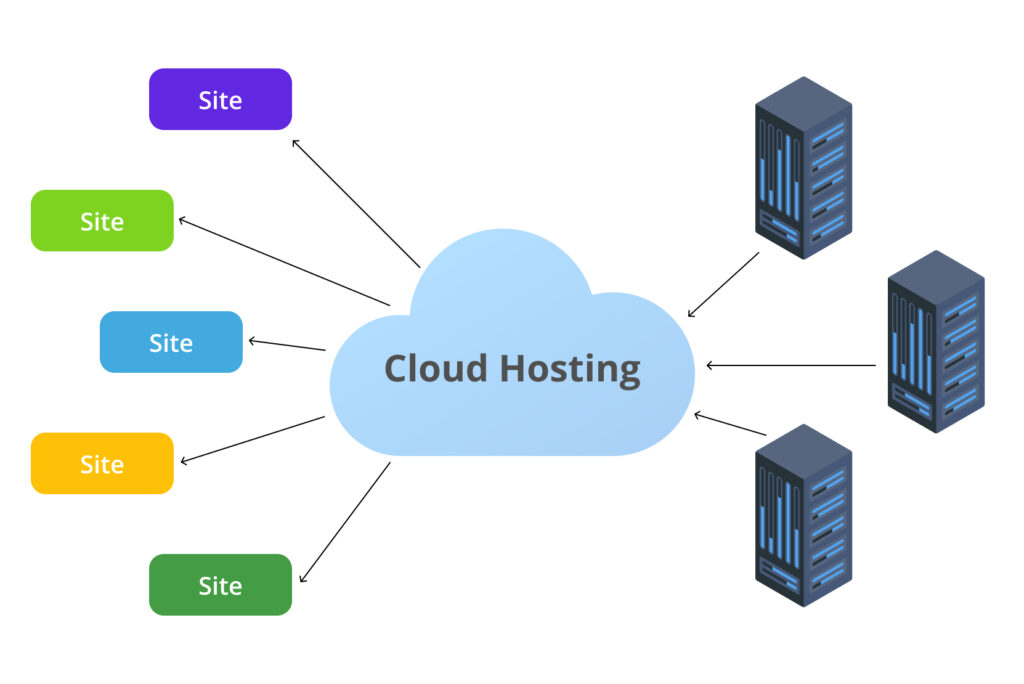Cloud Hosting for Startups: A Cost-Effective Solution

Getting started with your startup in this fast-paced, competitive business environment requires a cost-efficient solution that is scalable, flexible and supports growth.
One such solution is a cloud hosting architecture that harnesses real power while meeting changing needs without hampering costs.
In this article, we will understand how a cloud server is a cost-effective solution, especially for startups. So, businesses looking for a cloud web hosting plan must keep reading.
What is Cloud Hosting?
A cloud server is a virtual web hosting infrastructure formed over a network of servers. It stores files and data on multiple server nodes distributed across various physical locations.
This architecture ensures that your website data is distributed and retrieved over a network, reducing the risk of single-point failure.
How is Cloud Hosting a Cost-Effective Solution for Startups?
For any business, especially a startup, the biggest dilemma is delivering quality while managing costs. Traditional hosting options require a large initial investment, which also adds maintenance costs.
However, with cloud server hosting, this aspect changes as the pricing model is based on pay-as-you-go. Hence, startups only pay for the resources they use. This benefit of cloud hosting ensures that your funds are used and managed according to business priorities.
With cloud hosting, startups can save on various ongoing costs, such as IT maintenance, staff training and recruitment, salary, power and cooling, etc.
Other Benefits of Cloud Hosting for Startups
1. Scalability
The scalability required for a startup website is quite unpredictable. If web hosting is not chosen wisely, it can lead to various issues, including poor performance.
However, cloud hosting benefits in terms of resource scalability. Users can easily adjust their resources according to changing needs. This saves on costs without any compromise on performance.
2. No Worries about Maintenance
Unlike the traditional model, which requires heavy initial investment and later maintenance costs, cloud server hosting avoids any upfront or ongoing expenses related to a physical server.
Since cloud servers have virtual architecture, it removes the need for physical hardware, letting businesses run without investing in costly on-site infrastructure.
3. Strong Security
Most cloud hosting plans include security benefits like regular backup, data encryption, and firewalls.
These security services can be expensive if used independently. Therefore, cloud servers also benefit from security cost savings.
4. Collaboration
Cloud server hosting facilitates collaboration, which means you can access and collaborate data and applications anytime, anywhere. This comes in really handy if your startup business model is distributed, which is the case with most startups.
Moreover, cloud servers easily collaborate with customers, partners, and teams, regardless of location. Everyone can access and retrieve the same information, ensuring productivity and smooth communication.
Conclusion
Startups focus on innovation and core strategies rather than managing their IT infrastructural demands. When you have a cost-effective cloud hosting provider and infrastructure, you can be assured of efficient performance at an affordable cost.
You save a lot on initial investment and maintenance, as well as on security and scalability. This helps small businesses and startups thrive and grow, as they are backed up with resilient infrastructure. Irrespective of the pros and cons, cloud hosting offers all the needed benefits, which makes it the perfect web hosting option, especially in terms of cost for startups.









